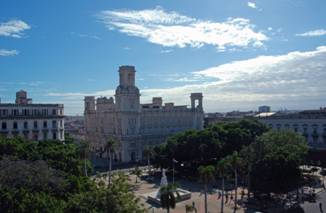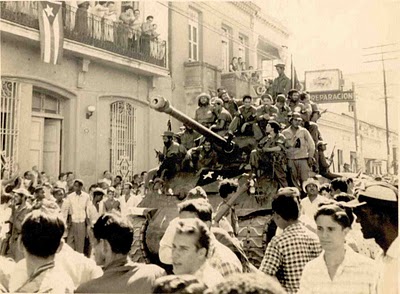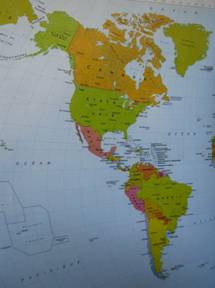It’s complicated to prepare a preschool class according to present pedagogical standards if resources are lacking or the owners of a nursery don’t have a clear idea of what they need. On top of small problems you must also teach preschoolers of differing ages. The experts’ recommendations don’t matter when deciding on activities. Generally it’s hard to bear them in mind if the children cry over joining in.
You run into cases of young children with brain damage who learn to count and interact the same as the others, or with kids only 3 years of age whose behaviour and reasoning is that of a 5-year-old. Babies who refuse to stay in the play pen and must be given a book so that they might ‘join in’, they already know the colours and they make efforts to learn shapes, even recognising when a piece is missing.
The traffic light game is, in my regard, a good example of a pre-school class facing difficult conditions. There are several aims: to learn colours, vocabulary, to use a pencil, to follow instructions and to recognise the world in which they live.
The materials used are sheets printed with traffic lights — simple rectangle — the circles are outlined in the colour of the corresponding light, pencils and balloons in green, yellow and red and, if they are available, small chairs and tables. If not, you sit down on the floor with the children and get going.
Part I. The drawing. Each child gets a sheet with a traffic light printed on it and should colour, according to their abilities, the lights according the colour of each circle. The teachers should be checking to make sure that they colour each colour in its right place.
Part II. The game. The group of different ages (3 to 5 years old) play to be the traffic light — 3 students each with a balloon the colour of one of the lights — and driving their imaginary car or choo choo train (one child behind another moving in a zig zag). Another child plays the traffic police and sets ‘very high fines’ to avoid accidents.
You should explain what an accident is with different examples and mime so that they understand better. If anyone falls over say the word: fallen, accident. Few cry unless it’s really painful. As they say “crying as you please makes you ugly in the photo.” The camera is always ready to show their face and they see the difference. No one wants to be ugly. For the others you say to smiling participants “the little frog will be fine come tomorrow morning time”…
The little ‘traffic lights’ are stood in a place which allows the ‘cars’ to pass in front, behind and to different places. If a ‘traffic light’ child doesn’t react when someone is waiting for them, explain to them that the traffic light could break down at any time and the driver should be alert to any possible problems.
The length of the class is 30 to 45 minutes. The owners and their employees, called teachers in our classes, are very alert to the most fidgety children, whilst they also learn simple techniques so that their students acquire essential social and intellectual skills during their cognitive development.
In Cuba it is not required for owners and employees of nurseries to have the indispensable pedagogical knowledge to carry out a service which entails so much responsibility. The reasons are diverse, amongst them that it makes bad business and is not profitable and very few people are interested in teaching.
For the parents, choosing a private nursery is a matter to be taken very seriously. I should admit that many owners are well prepared for working in the state nursery schools, but they don’t have the up-to-date knowledge. However their daily job is decidedly selfless. Sometimes I ask myself if society is grateful to them in any way. I’d like to believe that they are fully aware of the social importance of what they do. The majority of the mistakes they make is due more to a lack of proper training and resources than laziness.
Translated by: Sian Creely



 The trial of Amado Interian was held on the afternoon of December 13th in Courtroom Number 7 of the Havana Court. He is a former police officer who shot a 14-year-old teenager named Angel Izquierdo. The trial had been suspended on December 9th due to a nonappearance by the defendant.
The trial of Amado Interian was held on the afternoon of December 13th in Courtroom Number 7 of the Havana Court. He is a former police officer who shot a 14-year-old teenager named Angel Izquierdo. The trial had been suspended on December 9th due to a nonappearance by the defendant.






